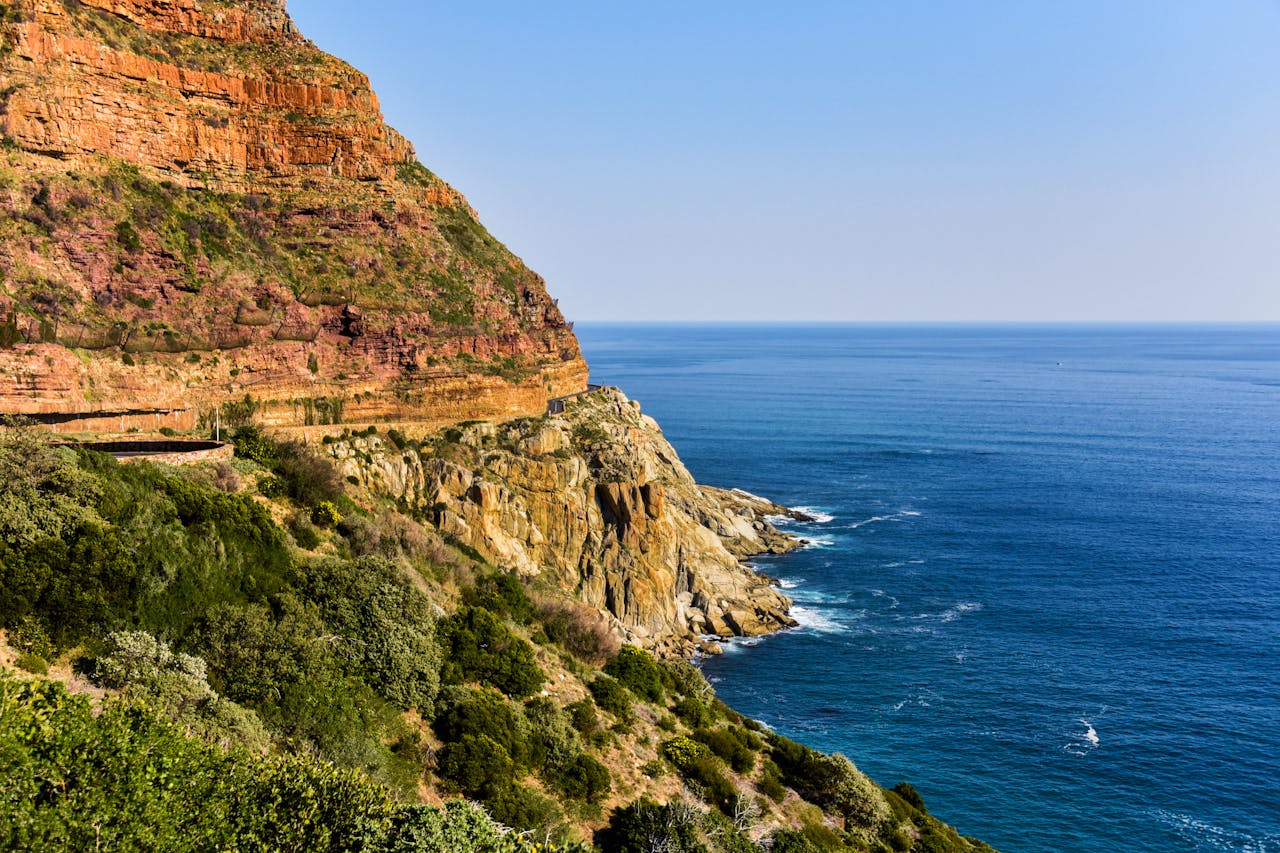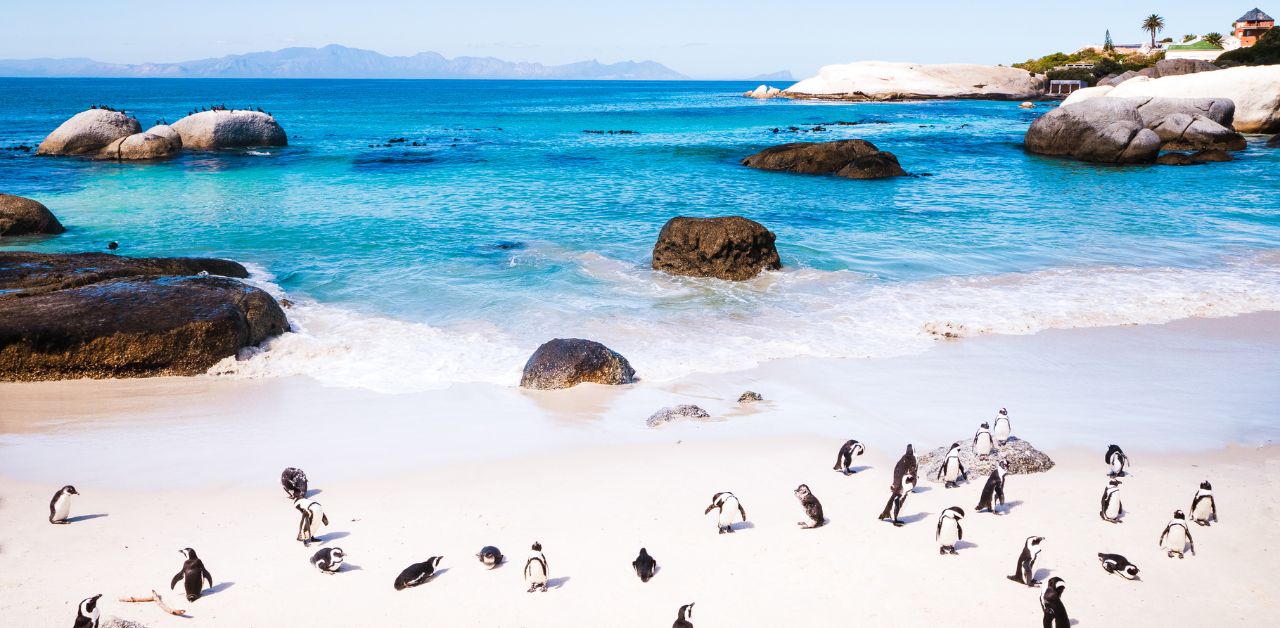For first-time travelers, safety is often a top concern when planning a trip to Africa. While some regions have experienced instability, there are numerous countries that welcome tourists with stable governments, well-developed tourism infrastructures, and incredible natural beauty. These destinations offer unforgettable experiences without compromising on safety, allowing you to fully immerse yourself in Africa’s wonders. Let’s explore some of the safest countries on the continent for first-time visitors.
Top African Destinations
South Africa: As one of the most popular African destinations for safari lovers, South Africa stands out with its world-famous Kruger National Park and a variety of private game reserves. Kruger is unique as the only large national safari park in Africa where self-driving is allowed, giving travelers the flexibility to explore its vast landscapes at their own pace. Many choose to stay in lodges within the park, though keep in mind that driving distances can be significant, often requiring a 4-wheel-drive vehicle. South Africa also boasts a well-established tourism infrastructure, especially in iconic regions like Cape Town, the Garden Route, and its many safari parks. While urban crime may be a concern, tourist destinations are generally safe when travelers take standard precautions. South Africa’s convenient flight access, diverse landscapes, and rich cultural experiences make it a prime choice for first-time travelers looking to explore Africa’s beauty.
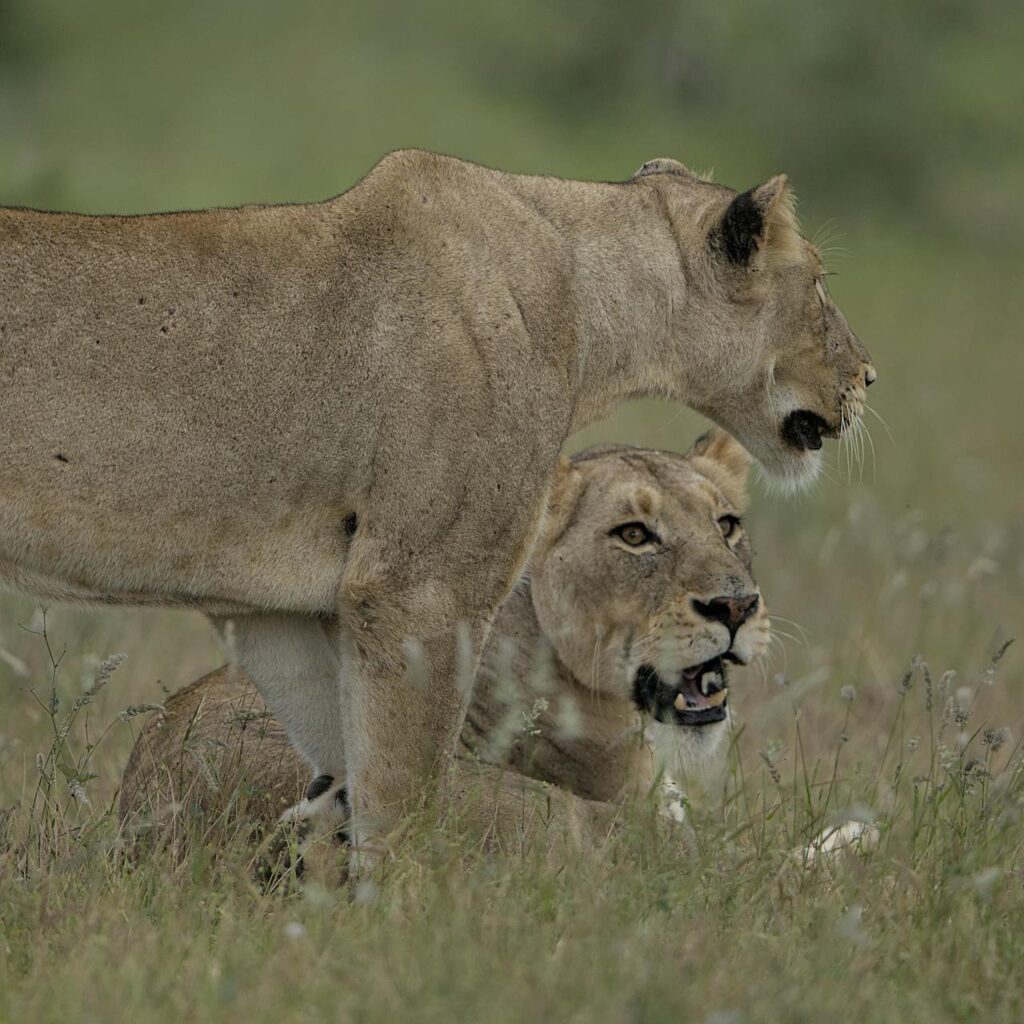
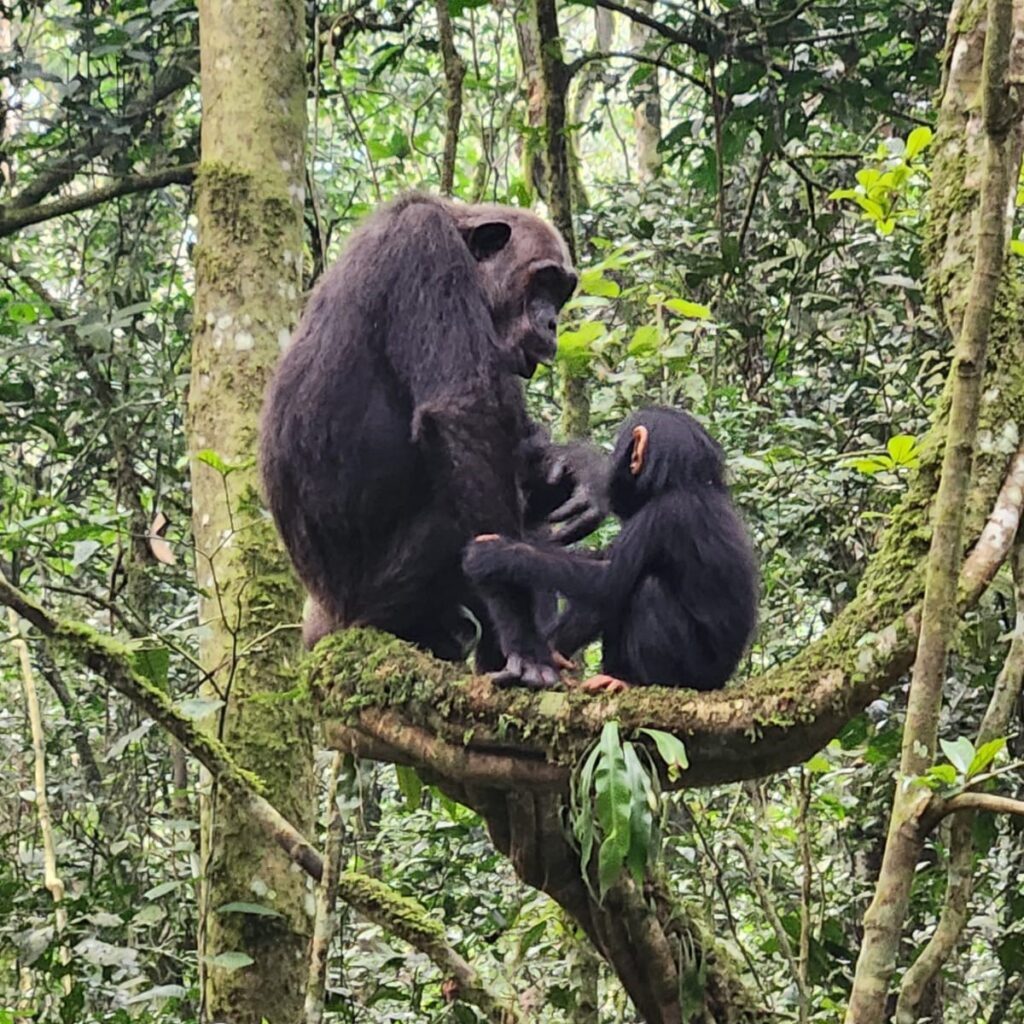
Rwanda: Often referred to as the “Switzerland of Africa” for its cleanliness, organization, and low crime rates, Rwanda is one of the safest countries on the continent. Its capital, Kigali, is a secure and vibrant base for tourists, offering easy access to Rwanda’s incredible natural attractions. Among these is the famous Volcanoes National Park, home to the awe-inspiring mountain gorillas and playful golden monkeys. Rwanda’s commitment to conservation and sustainable tourism means that your travel experience here will be both responsible and deeply rewarding, allowing you to connect with nature while contributing to the preservation of these magnificent creatures.
Uganda: Dubbed the “Pearl of Africa” by Winston Churchill, Uganda is a vibrant and safe haven for wildlife enthusiasts. This well-organized country provides a welcoming atmosphere, particularly in renowned areas like Bwindi Impenetrable National Park, where travelers can embark on gorilla trekking adventures, and Queen Elizabeth National Park, where you can spot elephants, giraffes, lions, and other magnificent wildlife. With its growing tourism infrastructure and affordability, Uganda is an excellent option for budget-conscious travelers seeking exceptional wildlife experiences without compromising on safety or quality.
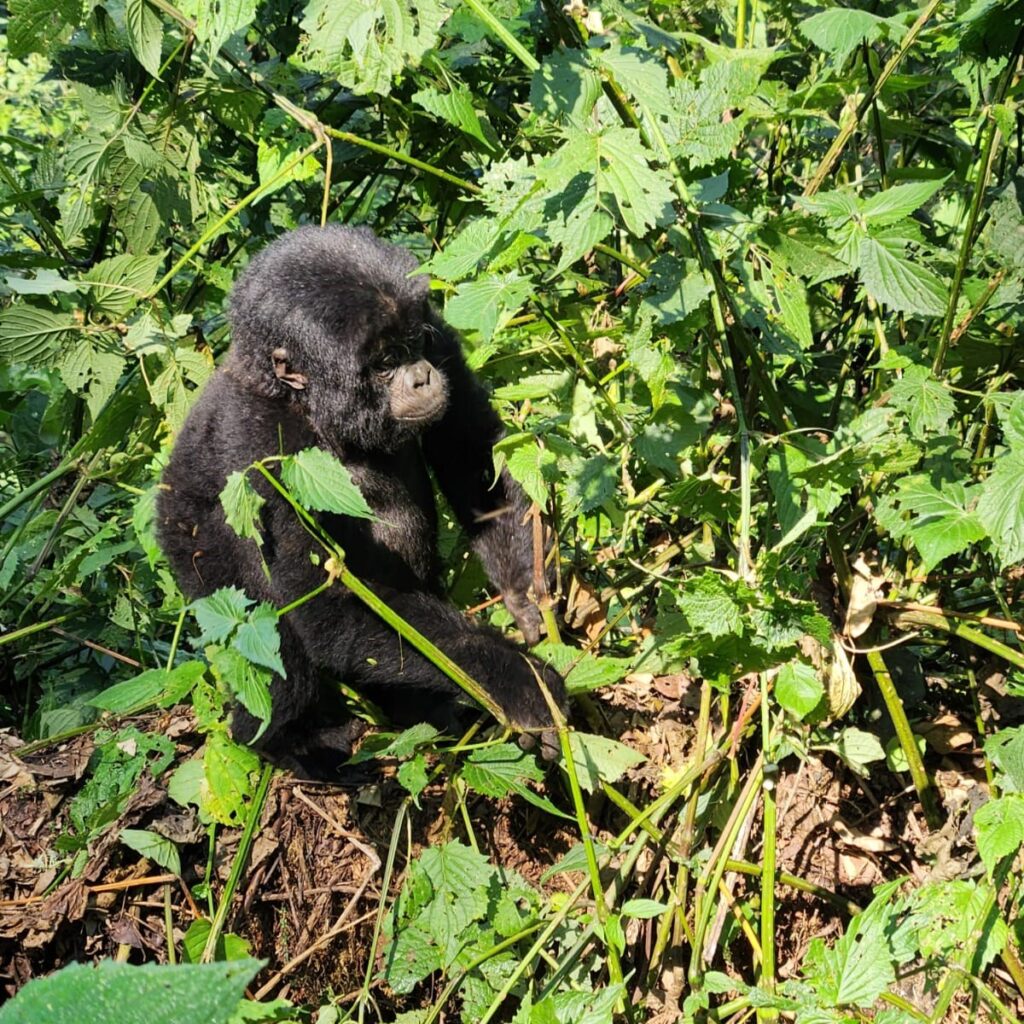

Botswana: Known for its unwavering dedication to conservation, Botswana offers some of the most exclusive and pristine safari experiences in Africa. With stable governance and peaceful surroundings, Botswana is an ideal destination for first-time visitors seeking a truly immersive wildlife experience. The country’s low-volume, high-quality tourism approach ensures that you’ll enjoy intimate and less crowded encounters with nature in breathtaking locations like the Okavango Delta and Chobe National Park. Botswana is also home to leopards, which can often be seen lounging in trees or stealthily prowling through the bush. However, it’s important to note that Botswana can be a pricey destination, with costs that don’t always reflect the level of service expected. Nonetheless, for those willing to invest, the rewards are unparalleled, offering tranquility, exclusivity, and natural beauty at every turn.
Tanzania: A gem of East Africa, Tanzania is home to some of the continent’s most iconic natural sites, including the Serengeti, Ngorongoro Crater, and Mount Kilimanjaro. It is a tourist-friendly country with a stable government and well-developed tourism infrastructure, making it one of the safest places for first-time visitors to experience world-class safaris and wildlife viewing. Tanzania’s diverse ecosystems, ranging from the stunning beaches of Zanzibar to the majestic peaks of Kilimanjaro, cater to both adventure seekers and those looking for a more relaxed escape. With its range of unforgettable experiences, Tanzania ensures a safe and magical introduction to Africa’s wild beauty.
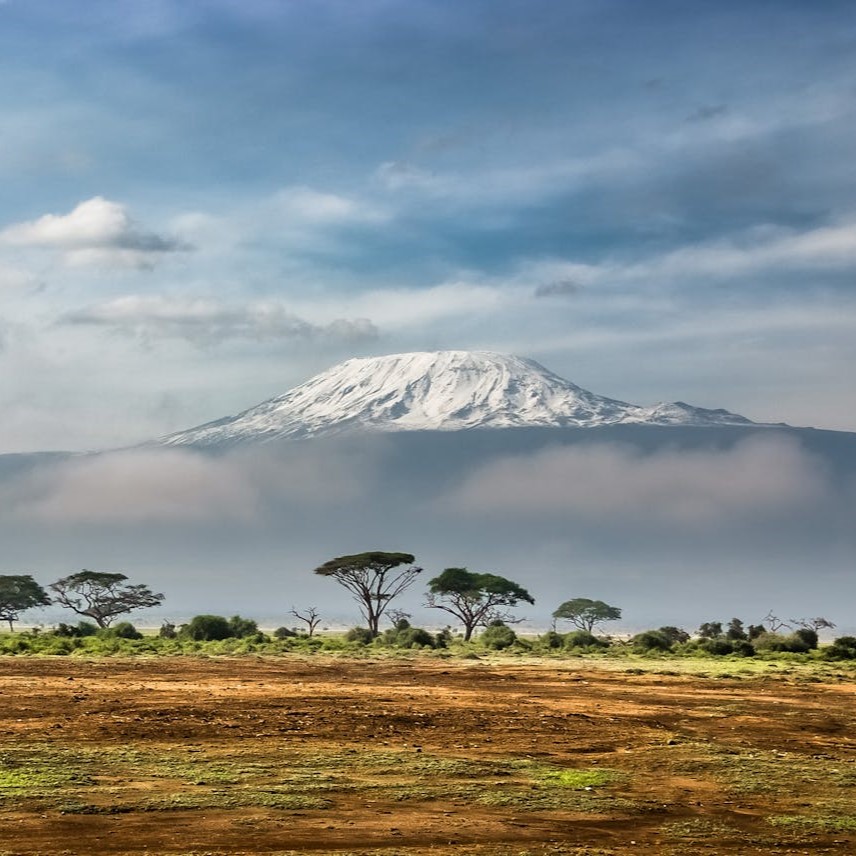
Tip: When traveling in Africa, it’s essential to carry cash in small denominations of US dollars or euros for tipping. Tipping is customary and appreciated by many of the people who contribute to making your trip special—hotel maids, porters, lodge staff, guides, and their assistants often rely on tips to supplement their income.
Here are some general guidelines to help you:
- Porters: A tip of $1 per piece of luggage is standard.
- Maids/Housekeeping: Tipping between $3 to $5 per night at lodges, camps, or hotels is customary.
- Lodge/Camp Managers: It’s common to tip around $3 per day per traveler for the manager who ensures your stay runs smoothly.
- Camp Staff: Many lodges have communal tip boxes for the entire staff. A general amount of $10 to $15 per traveler for the duration of your stay is typical.
- Guides: Your safari guide plays an integral role in your experience, from spotting wildlife to sharing local knowledge and customs. It’s customary to tip guides around $15 to $20 per day per traveler.
- Guide Helpers & Security Personnel: These team members, who often assist with spotting animals or ensuring your safety, are typically tipped around $3 to $5 per day per traveler.
Remember, tipping is a personal choice, so feel free to reward anyone who goes the extra mile to make your trip truly unforgettable. The hospitality of local staff is often one of the most memorable aspects of an African safari, and your gratitude can go a long way in showing your appreciation.
Health and Safety Preparations: Vaccinations and Altitude Considerations for travel to Africa
When planning your trip to Africa, it’s crucial to prepare for the continent’s unique health considerations. Ensuring you are properly vaccinated and equipped to handle varying altitudes will help keep your journey both safe and enjoyable.

Vaccinations: Depending on your destination, specific vaccinations may be required or strongly recommended. For example, many African countries, such as Uganda and Rwanda, mandate proof of yellow fever vaccination upon entry, particularly if you’re arriving from another African nation or a region where yellow fever is present. In addition to yellow fever, it’s advisable to get vaccinated for Hepatitis A, Typhoid, and Tetanus. Malaria is also a concern in many parts of Africa, so consult with your doctor about taking malaria prophylaxis, especially if you’ll be traveling in high-risk areas. Your healthcare provider can offer guidance based on your itinerary to ensure you’re fully protected.
Altitude Considerations: Many of Africa’s top safari destinations, particularly in East Africa, are located at higher altitudes—often between 1,000 and 2,000 meters (3,280 to 6,560 feet) above sea level. While this isn’t high enough to typically trigger severe altitude sickness, you may experience mild shortness of breath, particularly during physical activities like hiking or gorilla trekking. On the plus side, higher altitudes often mean cooler temperatures, which can make your outdoor activities more comfortable, especially in tropical regions.
Managing Health on Safari: Given the diverse environments and exposure to different bacteria, it’s essential to be prepared for common traveler ailments. Pack anti-diarrhea medication such as Imodium, along with rehydration salts to help recover quickly from any digestive issues. A small first aid kit should include basics like bandages, pain relievers (such as ibuprofen), antiseptic wipes, and any personal prescription medications. This will ensure that you’re well-prepared for any minor health concerns that may arise during your travels.
Tip: Visit a travel clinic or consult your healthcare provider at least 4-6 weeks before your departure. This will give you time to receive any necessary vaccinations and get any prescriptions you may need, such as malaria tablets. Your doctor can also provide region-specific health advice based on the exact areas of Africa you plan to visit, ensuring you’re fully prepared for any unique health challenges that may arise during your trip.
What to Pack for an African Safari: Beyond the Basics
Packing for an African safari requires more than just tossing clothes and cameras into a suitcase. Careful preparation is key to ensuring a safe, comfortable, and memorable adventure. Whether you’re heading out on safari or trekking through national parks, this comprehensive list of essentials will help you make the most of your journey.
Lightweight, Neutral Clothing: Safaris typically involve long days in the sun, so pack lightweight, breathable clothing to stay comfortable. Neutral colors like khaki, olive, and beige are ideal for blending into the environment and avoiding the attention of insects. Bright colors like red or blue can be distracting to wildlife and may attract bugs, so it’s best to avoid them. Opt for modest, practical clothing such as long sleeves and pants to provide protection from the sun and insects.
Wind Jacket and Warm Layers: While daytime temperatures can be hot, mornings and evenings—especially at higher altitudes—can be quite cool. Pack a lightweight wind jacket or fleece for early morning game drives and evening activities. Layering is essential, as temperatures can fluctuate significantly throughout the day.
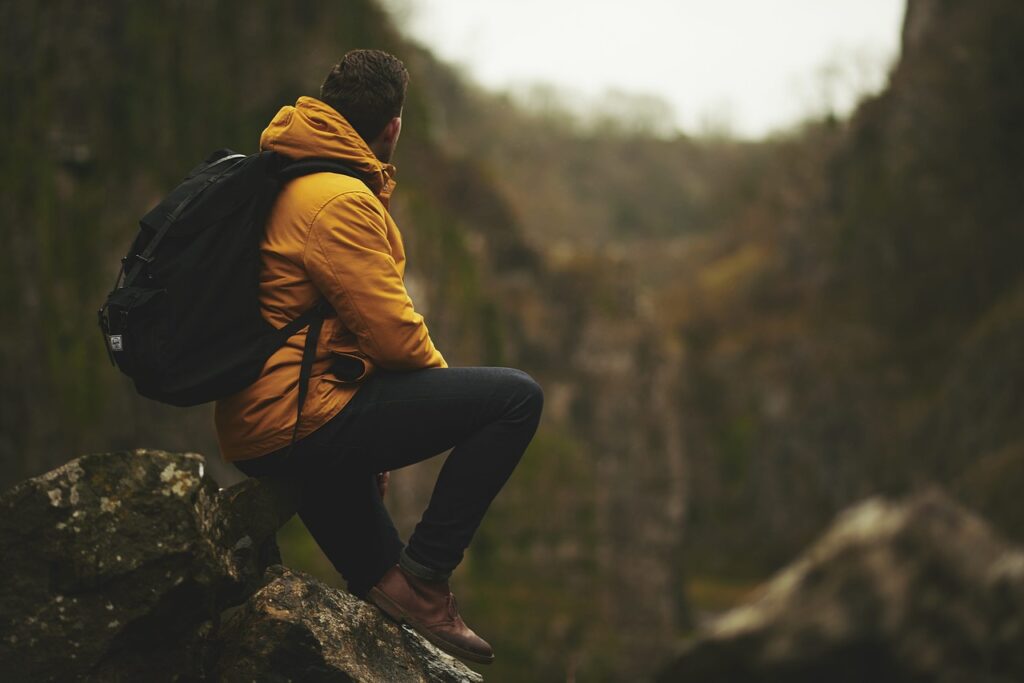
Comfortable Footwear: Safaris and treks often require walking on uneven terrain, so sturdy, comfortable shoes are a must. Hiking boots or cushioned sneakers are ideal for activities like walking safaris or gorilla trekking. You may also want to pack lightweight sandals for relaxing at lodges or camps during your downtime.
Anti-Diarrhea Medication: Adjusting to unfamiliar foods and water can sometimes cause digestive issues for travelers. Pack anti-diarrhea medication like Imodium or Pepto-Bismol as a precaution, and bring rehydration salts to help you recover quickly if needed. Being prepared will ensure minor stomach issues don’t slow down your adventure.
Insect Repellent and Malaria Prevention: Mosquitoes and other biting insects can still be a concern in many parts of Africa, even during the dry season. Bring a strong insect repellent containing DEET to protect yourself from bites. If you’re traveling to a malaria-prone area, consult your doctor about antimalarial medication and be diligent in applying repellent, particularly in the evenings when mosquitoes are most active.
Travel First Aid Kit: A small first aid kit is essential for handling minor injuries and ailments in remote areas where medical supplies may not be readily available. Include items like bandages, antiseptic wipes, blister pads, pain relievers, antihistamines, and any prescription medications you may need. Having a well-stocked kit will give you peace of mind on your trip.
Power Bank and Universal Adapter: Safaris often take you deep into remote areas where access to electricity may be limited. A power bank can keep your devices charged throughout the day, and a universal adapter will allow you to plug into outlets (many African countries use British-style G plugs). This ensures your phone, camera, and other essentials stay powered up.
Binoculars and Camera Gear: A good pair of binoculars is indispensable for spotting wildlife from a distance. They’ll enhance your experience by allowing you to see animals that might otherwise be too far away. In many national parks, you’ll be close enough to the animals that even a mobile phone camera can capture excellent photos. For photography enthusiasts, packing a camera with a zoom lens, along with spare batteries and memory cards, will ensure you don’t miss a single shot.
Reusable Water Bottle: Staying hydrated is vital, especially in Africa’s warm climates. A reusable water bottle is a convenient and eco-friendly option, and many lodges offer filtered water for refills. This minimizes your reliance on single-use plastic bottles while keeping you refreshed during your adventures.
Sun Protection: The African sun can be relentless, so pack plenty of sunscreen (SPF 30 or higher), a wide-brimmed hat, and sunglasses to protect yourself from harmful UV rays. Lip balm with SPF is also a good idea to prevent chapped lips caused by dry air and sun exposure.
Other Useful Items: Wet wipes, hand sanitizer, and snacks like energy bars can be lifesavers during longer drives or treks. Ziplock bags are great for keeping items like electronics safe from dust and moisture.
Pro Tip: If you’ll be taking domestic flights between destinations, check baggage weight restrictions ahead of time. Many smaller planes used for flights within Africa have strict weight limits—often as low as 15 kg (33 lbs) for both checked and carry-on luggage. Planning for this will help you avoid any last-minute surprises at the airport.
Best Time to Visit Africa for Safaris and Wildlife Viewing
Timing is crucial when planning a trip to Africa, especially if you want to get the most out of your safari experience. The dry season, typically from June to September, is widely considered the best time for wildlife viewing, offering prime conditions for safaris, gorilla trekking, and a range of other outdoor activities.
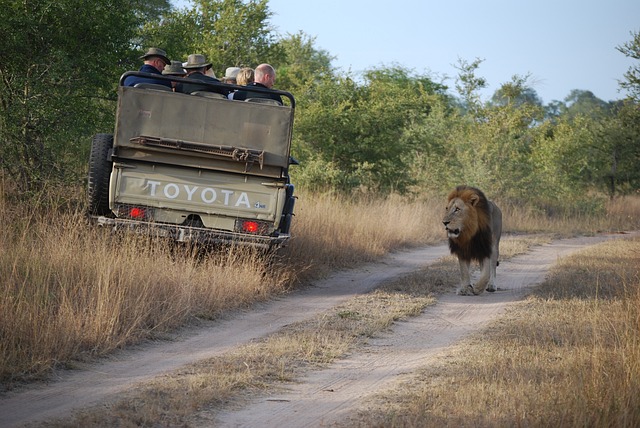
Comfortable Temperatures: The dry season brings cooler, more comfortable temperatures for travelers. In many regions, especially at higher altitudes, mornings and evenings can be a bit chilly, but the daytime temperatures are perfect for outdoor adventures. This balance—warm enough for daytime exploration, but cool enough for comfort at night—makes the dry season an ideal time to travel.
Fewer Mosquitoes: The dry season naturally curbs the mosquito population, which is a significant benefit in areas where malaria is a concern. While you should always take precautions such as using insect repellent and taking malaria prevention medication if needed, travelers visiting from June to September will generally encounter fewer mosquitoes and biting insects, reducing the risk of mosquito-borne illnesses.
Peak Wildlife Viewing: The dry season is also the peak time for wildlife viewing. As water sources dwindle, animals tend to gather around the remaining waterholes, making it easier to spot large numbers of wildlife. This is the best time to see the Big Five—lion, leopard, elephant, buffalo, and rhino—on game drives. Additionally, the Serengeti’s Great Migration, one of the most spectacular wildlife events on the planet, typically occurs between July and October. During this period, millions of wildebeest and zebras cross the Serengeti Plains in search of fresh grazing grounds, providing unforgettable moments for travelers.
Gorilla and Chimpanzee Trekking: For those interested in trekking to see gorillas and chimpanzees, June to September is the optimal time to visit Uganda and Rwanda. The drier conditions make the trails more accessible, reducing the risks and challenges associated with muddy, slippery paths. Lower rainfall during these months also improves visibility, increasing your chances of a successful sighting of these magnificent primates in their natural habitats.
Pro Tip: Although June to September is the peak travel season in Africa, it’s important to plan your trip well in advance. Lodges and permits for popular activities like gorilla trekking often fill up quickly during this period. Booking early will help you secure your spot and avoid any disappointment, ensuring that your African adventure goes off without a hitch.
Visa Information for First-Time Africa Travelers
Obtaining a visa for travel to Africa is generally straightforward, with many countries offering the convenience of eVisas or visas on arrival. Below is a quick guide to simplify the process for first-time travelers:
South Africa: South Africa allows visa-free entry for tourists from many countries, including the United States, the United Kingdom, and much of Europe, for stays of up to 90 days. For travelers from countries that do require a visa, the process is relatively simple and can be completed either online or by visiting a South African embassy. Ensure you have all the necessary documentation and apply in advance if needed.
Rwanda, Uganda, and Kenya: These East African countries offer eVisas, which can be easily applied for online prior to your trip. The processing times are typically fast, and the costs are reasonable, making it a hassle-free experience. It’s advisable to apply for your eVisa a few weeks before departure to allow ample time for processing and to avoid any last-minute issues.
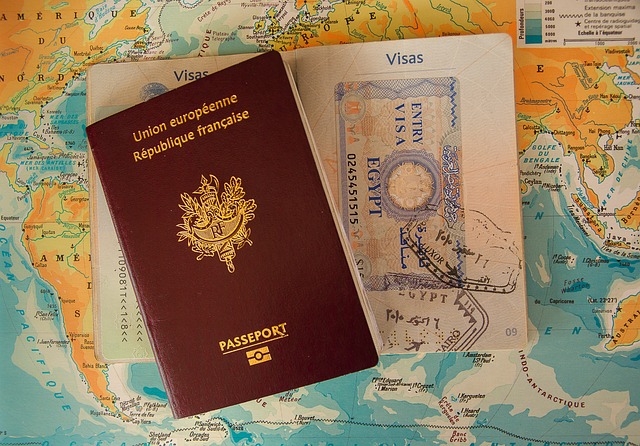
Tanzania and Zambia: Both Tanzania and Zambia offer visas on arrival at major airports and border crossings, making entry quick and convenient for tourists. However, be sure to carry the appropriate amount of cash, as some borders may not accept card payments for visa fees. Confirm the exact amount before traveling to ensure a smooth entry process.
Multi-Country Visa Option: For travelers exploring multiple East African countries, the East African Tourist Visa is an excellent option. Priced at $100, this multi-entry visa covers Uganda, Rwanda, and Kenya for up to 90 days, simplifying travel between these countries. It’s a convenient and cost-effective solution for those looking to experience more than one destination on their African adventure.
Disclaimer: Visa requirements and processes can change at any time, so it’s essential to verify the specific visa requirements for your destination well before you travel. Always check official government websites or consult your travel agency to get the most up-to-date and accurate information regarding visa policies.
Conclusion: Your First African Adventure Awaits
Africa is a continent filled with breathtaking landscapes, awe-inspiring wildlife, and vibrant cultures. For first-time travelers, the thought of visiting Africa might feel overwhelming, but with careful planning, it can be a truly life-changing experience. By understanding visa requirements, taking the necessary health and safety precautions, and packing appropriately for your adventure, you’ll be fully prepared to embark on an unforgettable journey.
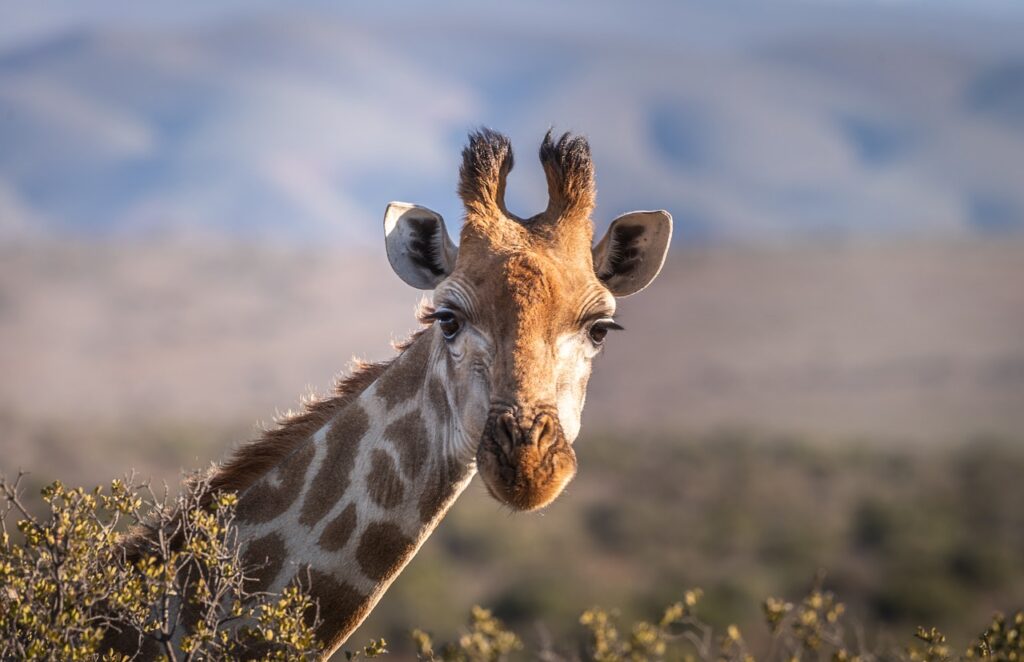
From the serene beauty of Rwanda’s volcanoes and Uganda’s exhilarating gorilla treks to the thrill of spotting the Big Five in South Africa and Tanzania, Africa offers endless opportunities for exploration and discovery. The continent is rich in natural wonders and cultural experiences that will leave a lasting impression on any traveler.
Timing is key—planning your trip during the dry season (June to September) ensures not only comfortable weather but also fewer mosquitoes and optimal wildlife viewing. And don’t overlook the added bonuses of long layovers; some airlines offer valuable perks that can turn a stopover into an extra mini-adventure.
With stable governments, well-established tourism infrastructures, and some of the world’s most iconic sights, Africa is ready to welcome you. So pack your bags, prepare your camera, and get ready for the trip of a lifetime—one that will create cherished memories and deepen your appreciation for the natural world.
Final Pro Tip: Africa’s true magic lies not only in its incredible landscapes and wildlife but also in its people and cultures. Make time to engage with local communities, learn about their customs, and participate in authentic experiences beyond the usual tourist spots. Often, these personal interactions and cultural exchanges become the most memorable highlights of your journey.
